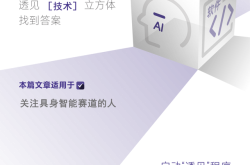Replicating the 2017 Bull Market? Established Internet Companies Target AI Video for "Re-Entrepreneurship"
![]() 07/11 2025
07/11 2025
![]() 546
546
As the mid-year report season approaches, let's reflect on the market performance from the first half of the year.
The current market environment bears striking similarities to 2017. Trump's re-election sparked another "Stock Market Storm," while a series of policies promoting consumption and supporting the technology industry in China have reignited the Hong Kong stock market, particularly in the consumer and technology sectors.
However, sustaining this bull market will require additional catalysts. Therefore, as the mid-year reporting season draws near, sectors with emerging industrial trends are attracting significant attention.
Heading into the second half of the year, the AI industry is brewing significant changes. The multimodal field is witnessing an intense wave of innovation. Companies like Baidu, Kuaishou, and Meitu have successively launched new video model products, and large model technology is establishing a new infrastructure for visual expression.
The question arises: When will the AI video sector experience an inflection point akin to ChatGPT? Can it become a pivotal driver of the current Hong Kong technology stock market?
Historical Precedent: Technological Innovation Sparking a Major Bull Market
Looking back at the 2017 Hong Kong stock market bull run, the influx of Chinese company listings and the interconnection mechanism were key drivers. Among the leading gains in new economy stocks, Tencent's market capitalization surpassed HK$3.8 trillion.
This year, the Hang Seng Index and Hang Seng Tech Index have increased by 19.2% and 16.8%, respectively, year-to-date. New consumption trends and the AI industry have fueled market recovery. Tencent and Alibaba have increased their investments in AI infrastructure, echoing the internet boom of that era.
Technology is a common theme in both market trends, but the focus has shifted from mobile internet and leading internet consumption companies to the implementation of artificial intelligence.
In this market trend, the rise and fall of the DeepSeek concept have exemplified the trajectory of the AI industry. Since the beginning of the year, when DeepSeek ignited the AI concept in Hong Kong stocks, the fervor gradually shifted from large models to applications. DeepSeek's multimodal capabilities lagged significantly, and its text-to-video function stagnated. In contrast, OpenAI GPT-4 achieved real-time video generation, and Kuaishou's Kling series captured 21% of the text-to-video market share within three weeks. According to Semianalysis data, DeepSeek's global user utilization rate plummeted from 50% in January 2025 to 3% in July.
The era of focusing solely on basic models is nearly over. Zhang Bo, Dean of the AI Research Institute at Tsinghua University, noted, "The lesson of DeepSeek shows that commercialization post-technology explosion is crucial."
This assessment is supported by industrial trends. Chinese technology companies are accelerating their AI application deployments. In the first half of 2025, there were 1,810 domestic large model bidding projects totaling over 6.4 billion yuan, surpassing the total for the entire previous year. As competition in basic models intensifies, substantial breakthroughs in AI applications are becoming a new engine driving the technology stock market.
Notably, the commercialization of visual AI products is somewhat ahead of language applications.
In the first half of this year, as millions of AI video applications emerged, multimodal technology transitioned from "model competition" to "scenario landing." According to AI Product Ranking statistics, at least 20 technology companies globally have launched new AI video products or model upgrades since the beginning of the year, with related product web traffic exceeding one million.
The explosive growth in user numbers is mainly due to significant improvements in video generation usability, with a marked reduction in "lottery-style" output frequency.
Overseas, Google's Veo 3, released in May, achieved audio-video fusion generation, outputting video content with natural lip synchronization and built-in scene sound effects, greatly enhancing generated content usability.
Domestically, Baidu unveiled an upgrade to its search function at the AI Day open house in July, with the input box supporting multimodal interactions like images, text, voice, and video. Baidu Search also integrated the video generation model MuseSteamer and the "HuiXiang" creation platform developed by the commercial R&D team. Users can now generate 3-minute HD videos with a single sentence and support storyboard editing, significantly lowering the creation threshold.
Additionally, companies like Kuaishou and Meitu are introducing new innovations in AI video, leading securities firms to generally favor the development prospects of AI video applications.
So, can AI video applications ignite this round of the AI bull market?
AI Video Commercialization Wave Sweeps Across, Internet Companies Reclaim Lost Valuation Ground
Previously, the market had low expectations for AI application commercialization. However, in the second half of 2025, as a new creative infrastructure in the era of AGI, AI video is rapidly gaining market acceptance.
In terms of commercialization prospects, one year after the advent of Sora, the industrialization momentum of AI video is rapid. According to Beziers Consulting's forecast, the global video production market will increase from 951.9 billion yuan in 2023 to 1,574.3 billion yuan in 2029, providing ample space for AI applications.
Simultaneously, AI video applications offer promising payment prospects. A Morgan Stanley report shows that 70% of Kuaishou's Keling's paying users are professionals in advertising, film, and television, with high accuracy demands fostering strong payment loyalty. Taking the e-commerce clothing industry as an example, AI video generation effectively addresses the content cost pain points associated with high-frequency updates.
Undoubtedly, AI video demonstrates immense commercial potential, becoming a significant driver for the revaluation of related technology companies.
As one of the Hong Kong AI concept stocks, Kuaishou's share price has reversed amid this AI video application wave.
Facing stiff competition from Douyin, the former "short video king" Kuaishou experienced a share price trend of "peaking upon listing." However, benefiting from AI applications this year, Kuaishou's share price has increased by over 55%, with a market value approaching HK$280 billion. Citibank noted that its video generation model Kling AI achieved over US$100 million in annualized revenue (ARRR) in the 10th month after its launch (March this year), and 2025 revenue is expected to exceed current estimates.
JPMorgan Chase also listed Kuaishou as its top pick in China's digital entertainment industry in its latest research report, emphasizing the strong commercialization potential of its self-developed Keling AI. In May this year, Keling AI launched the 2.1 series model, achieving triple breakthroughs in technology, experience, and aesthetics, providing diverse solutions for scenarios like film and television production, advertising and marketing, and game production, further expanding AI application boundaries.
Besides Kuaishou, Meitu is another company that has "reclaimed lost ground" in this AI video wave.
After the 2017 mobile internet bull market, Meitu's share price declined. However, in this year's bull market, its share price soared by over 240%.
This is also attributed to Meitu's strong performance in multimodal large model applications. Since focusing on AI imaging and design products in 2020, Meitu has formed a comprehensive AI application matrix covering both C-end and B-end.
In the "Year of AI Agents" in 2025, Meitu is developing AI Agents dedicated to vertical scenarios. Leveraging its accumulated imaging and aesthetic technology, it has carved out a niche in competition with giants like Adobe and ByteDance. In this regard, Huachuang Securities predicts that Meitu's operating revenue in 2025 will reach 4.5 billion yuan, an increase of 26% year-on-year. This optimistic outlook may partly stem from the growth momentum that AI Agents could bring.
Driven by a series of successful AI products, Meitu's share price returned to its 2016 IPO price on June 25.
From the "comeback stories" of Kuaishou and Meitu, it's evident that video generation models are evolving from "geek toys" to "production tools." Concurrently, a new wave of application innovation is pulling technology companies of varying sizes back to the same starting line.
Whether it's Google, Adobe, or BAT, they don't have absolute advantages in vertical application fields. In the future, the core competitiveness of AI enterprises will hinge on their ability to transform accumulated AI capabilities into deep application capabilities in vertical scenarios and build product moats through data flywheels. In the long run, achieving the leap from vertical experts to general platforms will become an opportunity for technology companies to reshape the industry.
Regardless, new applications represented by AI video are gradually gaining momentum. We are in a technological upcycle led by artificial intelligence, and technology companies that seize cutting-edge applications will create new wealth myths. As an international capital window, the Hong Kong stock market will continue to benefit from China's AI innovation dividend and become the "eye of the storm" for this round of application explosions.
AI Application Ecosystem: The Core Support for a New Round of Bull Market in Hong Kong Stocks
As a frontline for Chinese enterprises participating in international competition, the Hong Kong stock market has evolved from waves of internet company listings, the return of Chinese concept stocks, to the dense listing of emerging technology companies.
This year, Hong Kong stocks have significantly outperformed A-shares. This trend mirrors the logic of the Hong Kong stock market leading the rise during the mobile internet wave from 2012 to 2014. The core lies in the higher correlation between the Hong Kong stock market and current AI application industry trends.
Currently, global AI competition has entered deep waters. China and the United States are not only fiercely competing in underlying technology fields, but the construction of AI application ecosystems has also become a focal point of competition.
In the first quarter of this year alone, the number of super financing deals completed in the US AI field surpassed the same period in 2024, with at least 25 transactions cumulatively exceeding US$100 million. For example, the AI video editing platform Runway completed a US$308 million Series D funding round on April 3, with a valuation of US$3 billion.
However, in emerging application fields like AI video, Chinese technology companies are accelerating their layout to potentially overtake the United States. Morgan Stanley stated that investors are gradually realizing that China's AI development may not require massive capital investments. Even with limited high-end GPU supply, China still has the capacity to narrow or even bridge the technology gap.
In fact, the Chinese technology industry already holds certain technological advantages in multimodal AI applications. According to the latest AI video model performance rankings by Artificial Analysis, companies like ByteDance, Kuaishou, MiniMax, Tencent, and Alibaba excel in text-to-video and image-to-video fields.
Regarding global business layouts, Chinese technology companies are not lagging behind their American counterparts. In many countries and regions, Chinese solutions are more popular due to their cost-effective AI products. For instance, a Morgan Stanley report shows that Kuaishou's recently launched Keling 2.1 version has further lowered the usage threshold by optimizing pricing strategies. Analysts believe this will accelerate its penetration in the small and medium-sized enterprise market. According to The Information, Keling's monthly paid amount exceeded 100 million yuan in April and May 2025, with 70% of revenue coming from overseas markets.
It's foreseeable that with the enhancement of Chinese enterprises' technological competitiveness and the acceleration of commercialization, the development of the domestic AI application ecosystem will accelerate, and the narrative of AI applications will also be reflected in Hong Kong stocks.
On one hand, as Chinese technology companies demonstrate strong competitiveness in the AI field, the Hong Kong stock technology sector is expected to receive substantial industrial dividends. Companies like Baidu, Kuaishou, and Meitu are beneficiaries of AI applications driving productivity improvements, with innovation capabilities on par with American counterparts like Google and Adobe.
On the other hand, the valuation of Hong Kong stock internet technology is still relatively low. Wind data shows that as of June 30, 2025, the PE (TTM) of the Hong Kong Stock Connect Technology Index was around 21 times, located at the 24th percentile in the past decade. With intensifying domestic AI catalysis in the third quarter and accelerated breakthroughs by Hong Kong stock technology companies in multimodal AI applications, it will continue to support the narrative of this round of AI industry revaluation.
Looking ahead, the upward trajectory of China's technology industry is inevitable. The pressing question now is: Who will initiate the "ChatGPT moment" for multimodal AI applications?
Source: Hong Kong Stock Research Society






